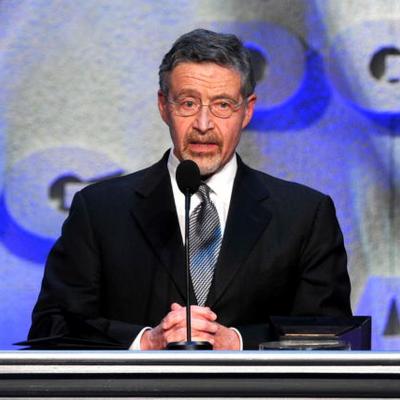Barry Meyer at a Glance
Barry Meyer’s Net Worth and Career: From Law to the Top of Warner Bros.
Introduction: A Quiet Powerhouse
Barry Meyer, a name synonymous with strategic leadership and transformative success, is an American television producer best known for his tenure as the chairman and CEO of Warner Bros. Entertainment. With an estimated net worth of $60 million, Meyer’s influence extended far beyond the financials. He orchestrated a period of unprecedented growth and profitability for the entertainment giant. Unlike many of his peers, Meyer preferred to operate behind the scenes, fostering a culture of discretion while achieving remarkable industry milestones. This article delves into the life, career, and lasting impact of Barry Meyer, exploring how he shaped the entertainment landscape.
Early Life and Education: The Foundation
Barry Michael Meyer was born on November 28, 1946, in New York City. Raised in a Jewish household, his upbringing instilled values that would later shape his leadership style. After graduating from high school, Meyer attended the University of Rochester, where he earned his bachelor’s degree. Driven by a thirst for knowledge and a desire for intellectual challenges, he pursued further education at Case Western Reserve University, where he obtained a Juris Doctor degree from the School of Law. Initially, Meyer considered a career in law, and he remains a member of the New York bar, as well as having been admitted to practice law in Ohio.
Career at ABC and Early Days at Warner Bros.: The Ascent
Meyer’s professional journey commenced at ABC Television Network, where he spent two and a half years honing his skills in the legal and business affairs departments. This early exposure to the inner workings of the television industry provided a solid foundation for his future endeavors. In 1971, Meyer made a pivotal career move, joining Warner Bros. Entertainment. Just one year after his arrival, he was promoted to Vice President of Business Affairs in the television department. This rapid advancement underscored his exceptional abilities and his adeptness at navigating the complexities of the entertainment business. Over the following years, Meyer continued to climb the corporate ladder, demonstrating his strategic acumen and commitment to excellence.
The Rise to CEO and the Golden Era: Transforming Warner Bros.
In 1978, Meyer was appointed as the Executive Vice President of the entire television division. During this period, Warner Bros. achieved significant success in both film and television. While the company produced successful films such as “The Exorcist” and “A Clockwork Orange”, it also generated substantial profits through its television shows. Shows based on well-known superheroes like Superman, Batman, and Wonder Woman were all huge hits. In the early 1980s, Warner Bros. also made early ventures into the video game industry. In 1984, Meyer’s ascent continued as he was promoted to the role of Executive Vice President of Warner Bros. Inc. He not only played a major role in all of the company’s activities but also retained full control of the studio’s television operations. In 1994, Meyer was appointed Chief Operating Officer (COO) of Warner Bros. Entertainment, a position that significantly expanded his responsibilities. This role encompassed oversight of studio facilities, legal affairs, business strategy, human resources, and government relations. Under Meyer’s leadership, the WB Television Network and The CW were established. Shows like “Buffy the Vampire Slayer,” “Smallville,” “Dawson’s Creek,” “One Tree Hill,” “Charmed,” and “7th Heaven” gained popularity during this period, ultimately leading to Meyer’s appointment as CEO and Chairman of Warner Bros. Entertainment in 1999. While the AOL-Time Warner merger initially faced challenges, Meyer steered the company through these turbulent times with his characteristic foresight and strategic management.
The Harry Potter Effect and Television Success: Blockbusters and Beyond
A defining moment in Meyer’s tenure was the release of the “Harry Potter” film franchise. Beginning with “Harry Potter and the Philosopher’s Stone” in 2001, the series became a global phenomenon, generating over $7.7 billion in worldwide box office revenues. “Harry Potter” was a major money-maker from the start, with the first film grossing over $1 billion. Meyer also remained committed to television, playing a key role in the launch of “Two and a Half Men” in 2003, which became one of the most profitable series, generating millions per episode by 2012. Furthermore, Meyer oversaw the release of “Batman Begins” in 2005, the first film in the critically acclaimed “Dark Knight” trilogy, which collectively grossed over $2.4 billion. In 2013, Barry Meyer stepped down as CEO, leaving a legacy of transformative leadership.
After Warner Bros.: Continuing Influence and Legacy
Even after leaving Warner Bros., Meyer remained an influential figure in the television industry. He continued to offer advisory expertise in areas such as labor issues, solidifying his reputation as a respected industry leader. Meyer has also served on the Board of Councilors of the USC School of Cinema-Television, the Board of Directors of the Motion Picture Association of America, and the Academy of Motion Picture Arts & Sciences. In 2014, Meyer’s expertise was further recognized when he was appointed to the board of directors of the Federal Reserve Bank in San Francisco, a three-year term that ended in 2016. This appointment highlighted Meyer’s financial acumen and his ability to contribute to a diverse range of institutions.
/**/
Conclusion: A Legacy of Strategic Leadership
Barry Meyer’s career is a testament to strategic vision, financial acumen, and a dedication to excellence. From his early days in the legal and business affairs departments to his transformative leadership as CEO of Warner Bros. Entertainment, Meyer left an undeniable mark on the entertainment industry. His ability to identify opportunities, navigate challenges, and foster a culture of success has solidified his legacy as one of the most influential figures in the history of Hollywood. His impact continues to resonate, inspiring future generations of entertainment executives and shaping the evolution of the industry itself.

